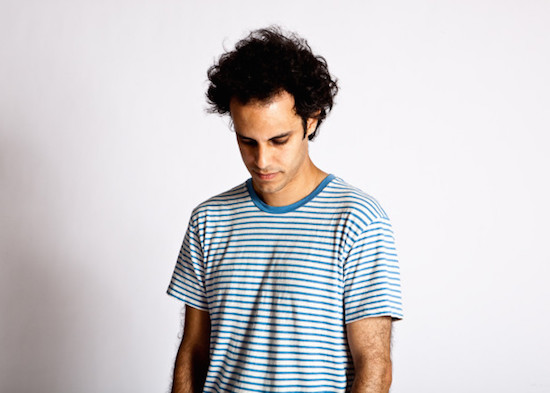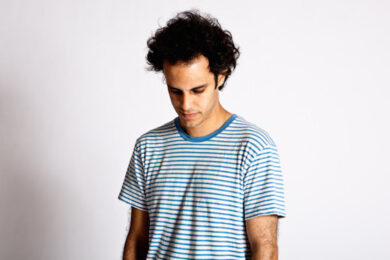Four Tet’s first album since 2015, New Energy, which was released last month, sees the producer continue to carve out a space for himself somewhere between the festival-dominating dance music explored in recent years on remixes for Eric Prydz, CHVRCHES and others, and the more restrained, delicate sounds of older material.
Sharing small pieces of information on the album via social media in the run-up to its release and since, and sparking a meme in the process, the producer, otherwise known as Kieran Hebden, has rolled out the record with relatively little fanfare.
He has made one appearance, though, as the latest guest on the Stance Podcast, where he’s let fans in a little on the new album, discussing his decision to give away some initial copies to Oxfam to sell, as well as the significance of the SW9 postcode in titling one of the album’s tracks ‘SW9 9SL’. You can hear the full interview for yourself below, or read on for some highlights from the chat. You can also follow Stance Podcast, which covers various topics around arts, culture and current affairs, here.
What is the significance of that postcode, on the track title ‘SW9 9SL’?
Kieran Hebden: It’s the postcode of Brixton Academy. I do these all-night events there where it’s quite different from the normal big show at Brixton. Tickets are five pounds, there’s no production or anything, it’s very stripped back – there is a big sound system, the decks are set up and it goes on all night. And my idea about it initially was because I saw a trend, especially with electronic music, that when people reached a certain level it was all like, Now you’re this big, you should do these bigger venues and we can charge 50 quid a ticket and you can have pyrotechnics and this and that. That’s one way of doing it, but there has to be some sort of alternative. So I had this idea of doing this five pound all-night rave and it’s gone on to be quite a significant event. People embrace the spirit of it and it’s quite a different atmosphere to everything I do. I’ve done it five times now and they’ve all been really amazing nights to me, so I named this track on the album after the venue, as a tribute, an acknowledgment to how important it’s been. I think to have the confidence to not hide behind any kind of show business and just do something that’s purely about community and people is important.
Are you worried about what’s happening to music venues in London?
KH: So many great venues in London have gone over the last 20 years, since I’ve been producing music. Why doesn’t London have some of the best venues in the world? It seems insane to me. I see similar situations in places like New York, and you know it’s just money, mad bullshit money stuff, just completely dominating everything with no respect for art and culture. And if those things aren’t protected a bit, if they’re just not given any support, what’s the point in living in that town anyway? That’s the stuff we’re here for.
You gave the first 1,000 copies of your new album to Oxfam…
KH: The idea came from my mum – she works in an Oxfam branch and I was sitting with her and sheasked for some copies so we can sell them in her branch. I thought that was a brilliant idea, and realised I should give copies to loads of Oxfams. It’s a charity that’s been around my whole life and I’ve always associated them with music because most Oxfam shops sell records. I was going to just go around to a bunch of Oxfam shops and drop off some copies but then we got in touch with them and I said “I’ll give you a thousand copies if you think you can sell them all.” I can’t believe I’d never thought of it before.
Are you influenced by these wider issues when you’re making your music?
KH: A lot of what I do is informed by things going on in the world, from the events at Brixton Academy to trying to show support for charities. I remember I had a record come out in 2010 that was influenced by what it’s like to experience a night out, clubbing, ideas about escapism. When I sat down to make this record – concepts like that just don’t cut it for me right now. It’s impossible not to make a record that is heavily influenced by my experiences and reactions to politics, climate change and all the big issues going on right now. My record is definitely tied up in all that stuff, because so much crazy stuff happened while I was making it.



